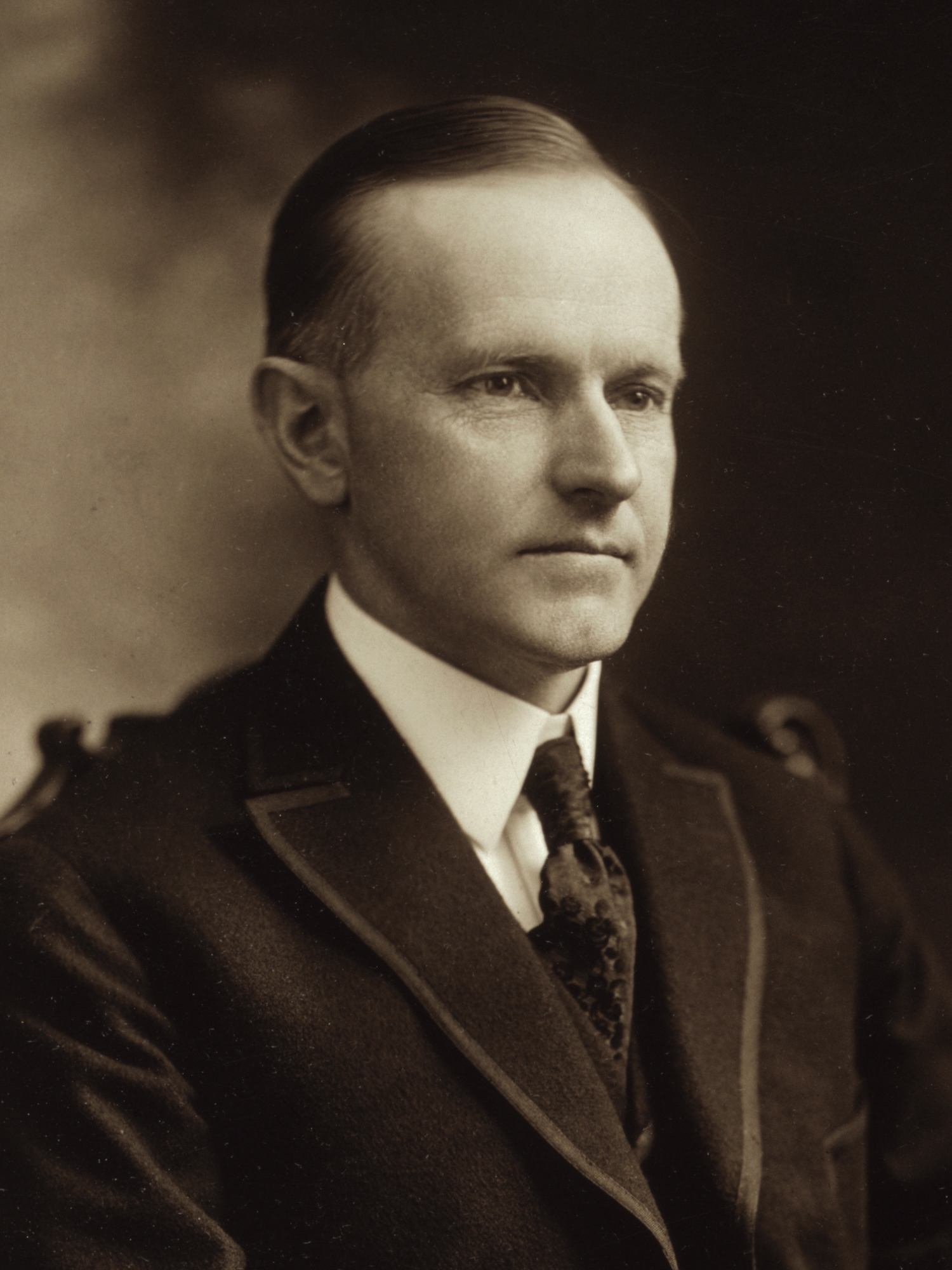1920s, Law and Order (1920)
Calvin Coolidge Quotes
1920s, Second State of the Union Address (1924)
1920s, Ordered Liberty and World Peace (1924)
1920s, Whose Country Is This? (1921)
1920s, Authority and Religious Liberty (1924)
1920s, Speech on the Anniversary of the Declaration of Independence (1926)
1920s, The Democracy of Sports (1924)
1920s, The Democracy of Sports (1924)
To Secret Service agent Edmund Starling, as quoted in The Forgotten Depression: 1921: The Crash That Cured Itself https://books.google.com/books?id=1PdtAwAAQBAJ&printsec=frontcover&dq=%22+Well,+they%E2%80%99re+going+to+elect+that+Superman+Hoover,+and+he%E2%80%99s+going+to+have+some+trouble.+He%E2%80%99s+going+to+have+to+spend+money,+but+it+won%E2%80%99t+be+enough.+Then+the+Democrats+will+come+in.+But+they+don%E2%80%99t+know+anything+about+money.%22&hl=en&sa=X&ved=0ahUKEwiz78rvs-3MAhVG8j4KHYm9AxAQ6AEIKjAC#v=onepage&q=%22know%20anything%20about%20money%22&f=false (2014), by James Grant
From a speech https://coolidgefoundation.org/resources/early-speeches-1890-1918-17/ delivered on Bunker Hill Day (17 June 1918).
1910s, Speech on Bunker Hill Day (17 June 1918)
1920s, Second State of the Union Address (1924)
1920s, The Genius of America (1924)
“I feel I no longer fit in with these times.”
To a friend, shortly before Coolidge's death, as quoted in Coolidge: An American Enigma (1998), by Robert Sobel, Regnery Publishing, p. 410.
1930s
1920s, Second State of the Union Address (1924)
1920s, Freedom and its Obligations (1924)
1920s, Speech on the Anniversary of the Declaration of Independence (1926)
1920s, Toleration and Liberalism (1925)
1920s, Address at the Black Hills (1927)
1920s, The Reign of Law (1925)
1920s, Speech on the Anniversary of the Declaration of Independence (1926)
1920s, The Press Under a Free Government (1925)
1920s, Address at the Black Hills (1927)
1920s, The Reign of Law (1925)
1920s, Speech on the Anniversary of the Declaration of Independence (1926)
From 'Address at Holy Cross' (25 June 1919), published in Have Faith In Massachusetts: A Collection of Speeches and Messages (2nd Ed.) http://www.archive.org/details/havefaithinmassa00cooluoft, Coolidge, Houghton Mifflin, p. 231.
1910s, Address at Holy Cross (1919)
1920s, Ordered Liberty and World Peace (1924)
1920s, The Democracy of Sports (1924)
1920s, Second State of the Union Address (1924)
1920s, The Democracy of Sports (1924)
1920s, The Press Under a Free Government (1925)
1920s, The Reign of Law (1925)
1920s, Speech on the Anniversary of the Declaration of Independence (1926)
1920s, The Democracy of Sports (1924)
1920s, Speech on the Anniversary of the Declaration of Independence (1926)
1920s, Authority and Religious Liberty (1924)
1920s, Speech on the Anniversary of the Declaration of Independence (1926)
Quote from a program at a Coolidge memorial service (1933); cited in The Oxford Dictionary of Quotations (1999). The passage did not originate with Coolidge, but evolved over several decades, appearing as early as 1881 in a youth guidance book. From [Garson O’Toole, https://quoteinvestigator.com/2016/01/12/persist/, Purpose and Persistence Are Required for Success: Unrewarded Genius Is Almost a Proverb, Quote Investigator, January 12, 2016]
1930s
1920s, Second State of the Union Address (1924)
1920s, Second State of the Union Address (1924)
1920s, Whose Country Is This? (1921)
1920s, Duty of Government (1920)
In response to a dinner companion who had bet that she could persuade Coolidge to talk to her (in later versions, to say at least three words to her)
According to Quote Investigator http://quoteinvestigator.com/2016/01/10/few-words, this story originated in a speech made at an Associated Press luncheon in 1924. Coolidge responded to the speech by declaring that the story was "without any foundation".
Disputed
1920s, The Reign of Law (1925)
1920s, Toleration and Liberalism (1925)
1920s, The Democracy of Sports (1924)
“There is far more danger of harm than there is hope of good in any radical changes.”
Source: 1920s, Speech on the Anniversary of the Declaration of Independence (1926)
Message to the National Security League in honor of Constitution Day, quoted in New York Times (17 September 1923) "Ceremonies Mark Constitution Day".
1920s
1920s, Second State of the Union Address (1924)
1920s, Proclamation Upon the Death of Woodrow Wilson (1924)
1920s, Whose Country Is This? (1921)
